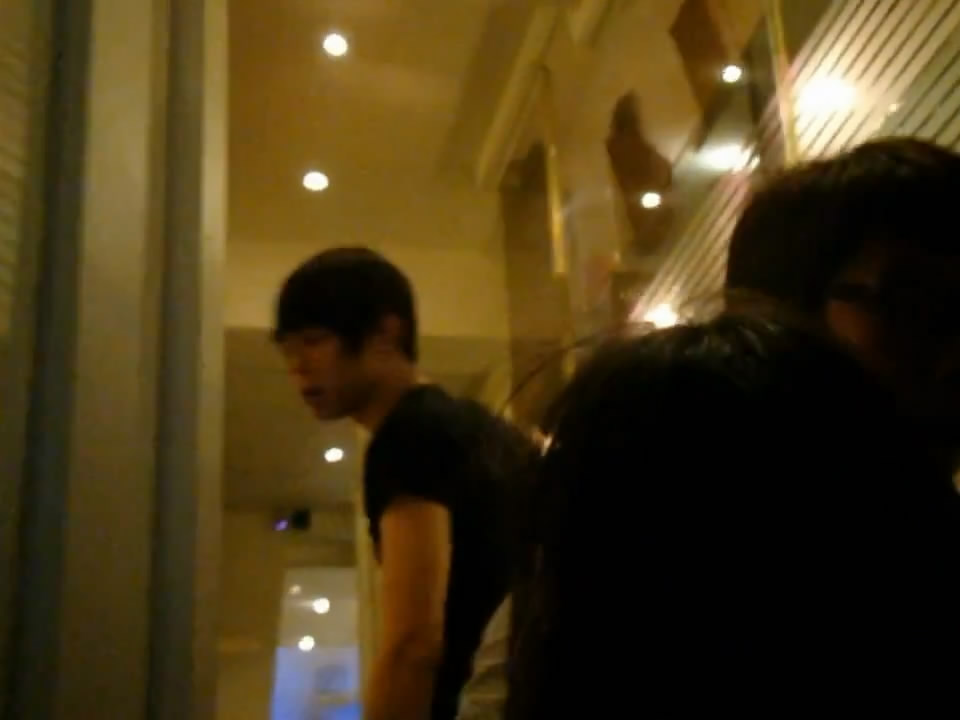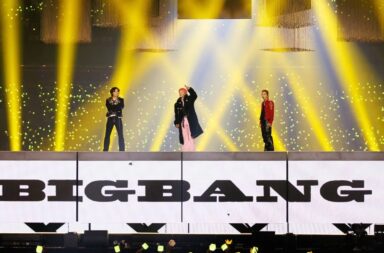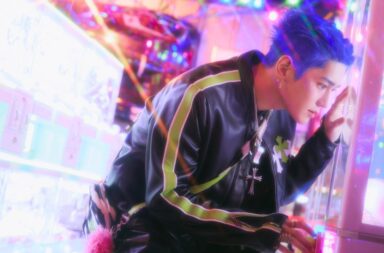So I think it’s time we had a little chat about this Yoochun thing, yeah?
Several days ago, a video of DBSK/JYJ‘s Yoochun hitting a fan surfaced on the internet and began circulating amongst international K-pop fandom. The video appears to have been taken in 2009, but was kept under wraps by Korean fans due to its controversial nature as well as its ties to sasaeng fan culture. Little information has been released about this incident, apart from several photos and videos that, while grainy and unclear, are nonetheless relatively damning.
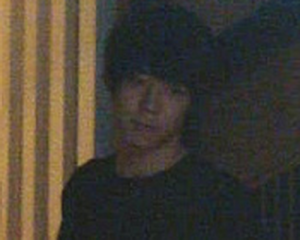 Like any other instance of K-pop Idols Gone Wild, the fan reaction to the incident has been fairly polarized, and predictably so. Many believe that the person in the video is indeed Park Yoochun of DBSK fame, and that he ought to be held accountable for his actions. Others are skeptical — the video is too unclear, the photos too grainy, and the evidence too unsubstantial to draw any conclusions. This, then, has given rise to multiple theories attempting to explain the incident — or, at the least, take a little bit of heat off of Yoochun. The general sentiment of this camp ranges from general skepticism and doubt, to claims that the timing of the video release conveniently coincides with recent reports of other slanderous media attacks towards JYJ, to beliefs that a “nice guy” like Yoochun couldn’t possibly be capable of such a dastardly act. But despite the conspiracy theories and high strung emotions, CJeS and JYJ has not said one peep in regards to the incident, thus offering little closure and lots of room for speculation.
Like any other instance of K-pop Idols Gone Wild, the fan reaction to the incident has been fairly polarized, and predictably so. Many believe that the person in the video is indeed Park Yoochun of DBSK fame, and that he ought to be held accountable for his actions. Others are skeptical — the video is too unclear, the photos too grainy, and the evidence too unsubstantial to draw any conclusions. This, then, has given rise to multiple theories attempting to explain the incident — or, at the least, take a little bit of heat off of Yoochun. The general sentiment of this camp ranges from general skepticism and doubt, to claims that the timing of the video release conveniently coincides with recent reports of other slanderous media attacks towards JYJ, to beliefs that a “nice guy” like Yoochun couldn’t possibly be capable of such a dastardly act. But despite the conspiracy theories and high strung emotions, CJeS and JYJ has not said one peep in regards to the incident, thus offering little closure and lots of room for speculation.
Let’s get one thing straight. If CJeS or JYJ comes out and says, yes, Yoochun did hit that fan, and yes, it was as bad as it looked, then fans have every right to be disappointed and netizens have every right to be disgusted. It is absolutely and indisputably unacceptable for anyone — male or female, celeb or plebian — to raise a hand towards someone in aggression and not in self-defense. If it’s a case of a man hitting a woman, it’s even less okay; this society certainly does not need any more evidence of patriarchal dominance and entitlement towards women. And if it’s a case of a celeb hitting a fan, it’s even worse. Such situations oftentimes cause the undesired entanglement of fan delusion and social injustice, inciting chaos all around.
The evidence seems to point firmly towards all three conclusions, thus leading to the conclusion that Yoochun was indeed guilty of hitting a fan, and worse, has neglected to acknowledge it for over two years. It’s not a confirmed conclusion — no one has commented on this incident save for fans and other “undisclosed sources” — but based on what we see, it’s pretty damning. But what, exactly, has been fueling the fire behind this piece of news? Certainly, a highly accusatory video is enough to incite considerable fan reaction, and justifiably so. But it seems that the real controversy behind this incident isn’t so much rooted in the incident itself as much as it is rooted in the netizen dispute surrounding it.
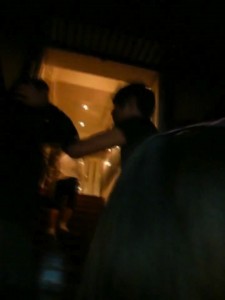 The nature of netizenship is built around the fact that we as netizens make judgments, both mild and brash, on second-hand information. We see a piece of information, we draw conclusions based on that information, and we post our opinions and thoughts about that information — sometimes having done additional background and contextual research on the matter, but oftentimes not. But even if we do attempt to do our research before forming any opinions, our research is oftentimes confined by the scope of the internet. With the tools that we’re given, it’s easy to say, “Yes — based on this photo and this video and this eyewitness account, we can conclude that Yoochun definitely hit that fan.” But it’s also equally easy to say, “No — based on this anecdote and this blog post and this archived information, we can’t say with absolute certainty that Yoochun hit that fan.” We assert our opinions based on what we see and read, even though what we see and read doesn’t necessarily encompass all the information needed to form a complete picture of what actually happened.
The nature of netizenship is built around the fact that we as netizens make judgments, both mild and brash, on second-hand information. We see a piece of information, we draw conclusions based on that information, and we post our opinions and thoughts about that information — sometimes having done additional background and contextual research on the matter, but oftentimes not. But even if we do attempt to do our research before forming any opinions, our research is oftentimes confined by the scope of the internet. With the tools that we’re given, it’s easy to say, “Yes — based on this photo and this video and this eyewitness account, we can conclude that Yoochun definitely hit that fan.” But it’s also equally easy to say, “No — based on this anecdote and this blog post and this archived information, we can’t say with absolute certainty that Yoochun hit that fan.” We assert our opinions based on what we see and read, even though what we see and read doesn’t necessarily encompass all the information needed to form a complete picture of what actually happened.
Nevertheless, we hold firm to the opinions that we form, and once we lock into a certain opinion, it’s difficult for us to reevaluate our thoughts and view any new, additional evidence in any other context apart from our own preestablished opinion. For instance, suppose CJeS releases an announcement tomorrow saying that Yoochun didn’t hit that fan, and provides substantial evidence defending their case. Considering the way that netizen emotion and response has panned out, it would not be surprising if those who previously believed that Yoochun was guilty would be extremely skeptical of CJeS’ claims, calling it a “cover-up act,” even though an official statement from CJeS is perhaps the most conclusive piece of evidence that can possibly be drawn from this case. Likewise, those who previously believed in Yoochun’s innocence would take CJeS’ statement as a sign of relief and perhaps as a license to say “I told you so.”
Either way, netizens have already locked themselves into their own respective opinions even without substantial evidence, and are unlikely to change their opinions after the fact. This is called attitude polarization, and when it is involved in a situation where a person’s moral integrity and public image are on the line, it can be a very dangerous phenomenon.
Almost every opinion about this incident is based in assumption. Many fans believe that a K-pop idol that’s as nice as Yoochun couldn’t possibly be capable of doing something as horrible as hitting a fan — which falls into the assumption that K-pop idols are infallible, superhuman, god-like creatures who are incapable of doing any wrong. Others believe that the sasaeng fan was getting all up in Yoochun’s business and Yoochun was just frustrated, causing him to snap — which falls into the assumption that the sasaeng fan was being aggressive and that Yoochun doesn’t have a good handle on his emotions. Still others believe that since Yoochun has had a history of voicing his discontent with extreme fandom and has shown other acts of physical aggression in the past (i.e. snatching cameras out of the hands of fans), it’s no surprise that Yoochun hit this fan and did so with malicious intent — which falls into the assumption that Yoochun is a hot-tempered person with attitude problems.
These are all reasonable opinions built on evidence and the interpretation of that evidence. But as reasonable as they may be, are they well-grounded enough for anyone to be deifying Yoochun or condemning Yoochun to the depths of hell? As netizens with a self-perceived sense of impeccable judgment and perceived wealth of information at our fingertips, we may think that we are justified in making brazen judgments on whatever public figure we please if we are given evidence that is damning enough to incite our netizen rage. And we have the right to do so. It’s a free internet, after all. But is it necessarily the right thing to do? Perhaps that’s something that’s worth a second thought.
Netizen behavior isn’t something that will easily change for the better, but it’s interesting how we as international K-pop fans are the first to denounce netizens for their judgmental behavior whilst freely doling out judgments ourselves whenever something socially questionable comes up. Sometimes we do so even without consulting the proper historical or social contextual information that is readily accessible to us (see: international fan reaction whenever a K-pop idol does blackface). We’re allowed to be angry and we’re allowed to be disgusted whenever we see a public figure do something questionable. But at the same time, it’s important to express our discontent within the frame of reality and with a mindset that acknowledges the limitations of our knowledge.
In that video, someone raised his hand against someone else. We don’t know if the person who raised his hand was indeed Yoochun, and nor do we know if the person who was hit was indeed a stalker fan. But we do know that someone got hurt. Yoochun or not, this was a case of assault and it needs to go through the proper channels and proceedings and be treated in a proper manner. I hope that the victim was able to receive the help and assistance needed after going through this ordeal, and I hope that the perpetrator is held responsible for his actions and is subject to a proper and fitting punishment. This case deserves to be treated with the same degree of respect and severity as any other case of assault, and by making brazen judgments across the internet that serve to baselessly defend or condemn, we are not treating this case with the respect that it deserves.
